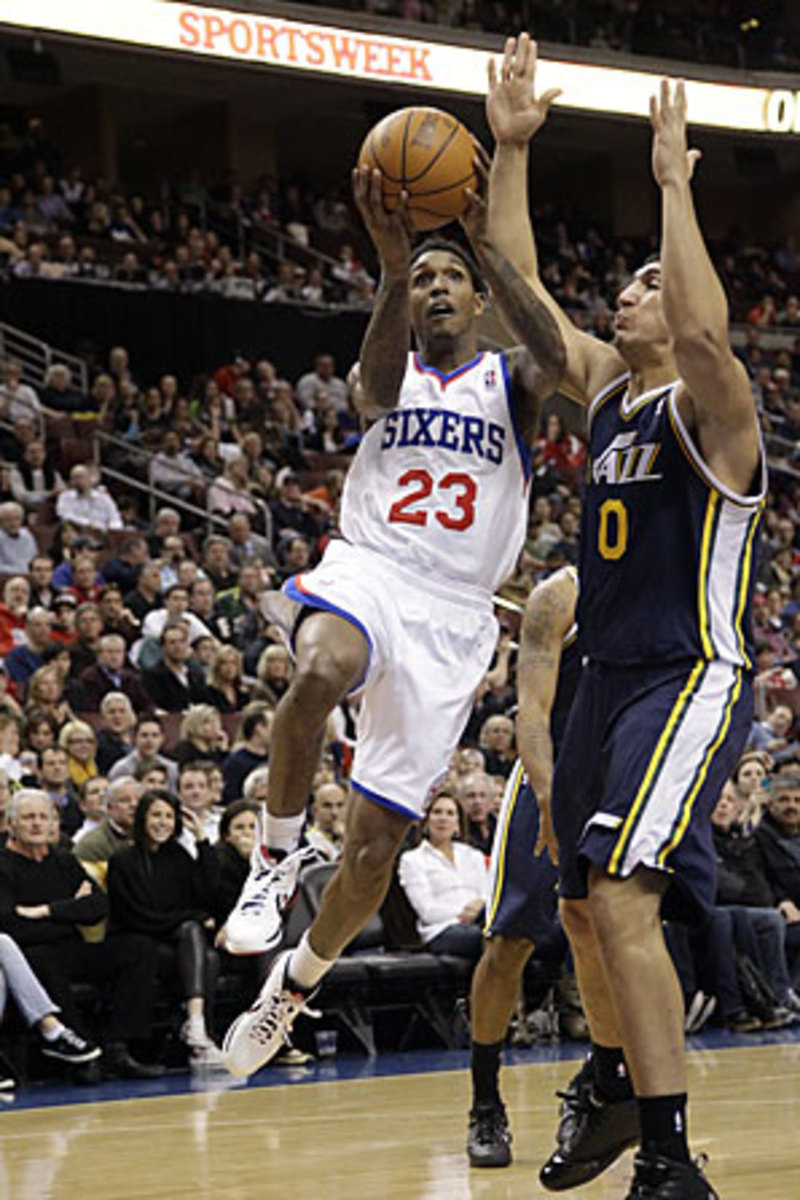Starless teams maximize talent but face tough reality in postseason
They have surged at different times, first the Pacers and 76ers and Nuggets, then the Rockets, most recently the Jazz. Four of them are in line to make the playoffs and Utah is on the fringe.
But after they have churned and scrapped and sacrificed their way to spring, they will be confronted by the cruel reality of the NBA's postseason: Only one team in the past 40 years has won the championship without a sure Hall of Famer. If you don't have a star, you don't have a chance.
I wrote about a club in such a quandary for this week's issue of Sports Illustrated. The 76ers have perfected almost everything within their control. They play the best defense in the NBA, ranking No. 1 in points allowed per possession. They are on pace to set a record for fewest turnovers committed per game. Their leading scorer, Lou Williams at 15.3 points per game, comes off the bench and so does their third-leading scorer, Thaddeus Young, who signed a five-year, $43 million contract before the season.
The 76ers take care of details others wouldn't consider. They all showed up to Andre Iguodala's surprise 28th birthday party. They all went to the National Civil Rights Museum in Memphis. Nine of them flew to Los Angeles over the summer to play pickup games at UCLA and they rotated out of pick-and-rolls as if it were the regular season. Only one of them has been fined in the past year and a half. Chemistry and selflessness and work ethic can get a team to the playoffs, but unfortunately, not very deep in the playoffs. The last squad to win a championship with a leading scorer who averaged fewer than 15.3 points was in 1948.
The 76ers started 20-9, with a four-game lead in the Atlantic Division, and now they are 29-25, with a one-game deficit. In the past five days, they've lost to the Wizards and the Raptors. More alarming than their slide, though, is the fact that they were ever 20-9 in the first place. "What's happening here is almost unheard of," one player said at the time. A coach acknowledged that the Sixers were probably "maxing out."
For a team to win without a headliner, it has to be almost perfect, and near-perfection is hard to sustain. Indiana lost five games in a row, and then four. Houston started 3-7. Denver dropped 10 of 13 in February. Utah dropped 11 of 14. In a season when all the stars are taking nights off, the teams without stars are not afforded that luxury. The Heat and the Thunder can win with three players contributing, as long as they are the right three. The 76ers and the Rockets need everybody.
The all-for-one teams are actually a byproduct of the super teams. Because of the collective bargaining agreement, teams can afford two and sometimes three stars, but not much else. You can have a few great players and a lot of marginal ones, or eight very good players stacked on top of each other. Any general manager would pick Option A, the proven path to a championship. In the NBA, nobody wants to be part of the middle class, where you can't win the title and you also can't win the lottery. Franchises in Philadelphia, especially, are not allowed to celebrate the No. 7 seed. Yet, there must be room to appreciate how the Sixers, and those like them, have fought the star system.
Besides, there is that one team giving all the others hope, the one team in the modern era that captured a championship without a sure Hall of Famer: the 2003-04 Pistons, role models for the 76ers and Pacers, Rockets and Nuggets and Jazz. They have a prayer. The old Pistons are proof.
"Sure, it can happen," an NBA GM said. "But only once every 40 years."





